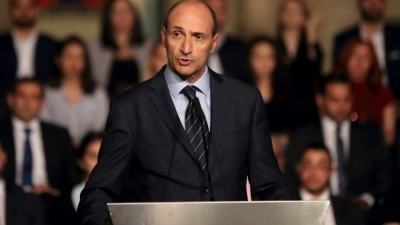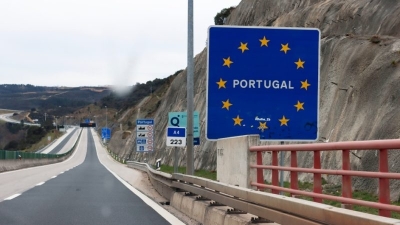European standardisation group gears up to elect new director amid conflict with EU Commission

The battle to lead the European Telecommunications Standards Institute (ETSI), one of the most influential organisations in setting the technical standards for key global technologies, has entered a decisive phase amid continued tension with the EU executive.
ETSI, which in recent years has had a particularly strenuous relationship with the European Commission, has narrowed down to three candidates for its top job following interviews conducted in Frankfurt on 21 and 22 February, to be voted on by the organisation’s members on April 16.
One of these candidates is Frenchman Gilles Brégant, current director of the French spectrum agency (ANFR), Euractiv learnt from several well-informed sources. Brégant, who has the unique combination of being a European citizen and employment within a member state administration, is arguably the most agreeable choice for the Commission, which has been trying to counter US and Chinese influence amongst tech standards.
The other candidates are incumbent ETSI director Luis Jorge Romero – who has faced friction with the EU executive in recent years – and Jan Ellsberger, board member of a consultancy company and former vice president of Huawei, the giant closely related to the Chinese state.
Romero’s selling point is that he will be able to capitalise on his good track record of ETSI’s influence. Ellsberger’s expertise on 3GPP telecommunication standards is recognised within and outside the EU, while Brégant brings a strong knowledge in the EU regulatory framework.
Tension with Commission
Established in the late 1980s, ETSI is a leader in shaping technical standards for key global technologies. As it is an independent and privately funded organisation, the Commission has no say in its new chief.
The question now is whether the Commission or national government will politicise the election process and make the last lap of the race a bloody battle of influence between industry and institutions.
Romero has repeatedly clashed with EU officials, including Single Market Commissioner Thierry Breton, reportedly over ETSI’s closeness to both the private sector and foreign tech companies.
As such, the Commission downgraded ETSI’s role in its standardisation requests of key EU digital regulations, such as the AI Act and Cyber Resilience Act, despite recording the views of the two other European standardisation organisations, the European Committee for Electrotechnical Standardisation (CENELEC) and the European Committee for Standardisation (CEN).
Ellsberger’s Huawei links could raise eyebrows at the Commission. As Euractiv reported, the EU executive is reluctant to have the standardisation body headed by people who worked for non-European companies.
ETSI’s general assembly will vote on 16 April to formally appoint the new director. Its 900+ members will be asked to cast a ballot in a system of weighted votes. ETSI’s largest corporate contributors can top 100 votes, while national governments 40.
In case of Romero’s re-election, he will be appointed for three years, while Ellsberger and Brégant would be elected for a five-year term.

European standardisation organisation’s leadership election embarrasses EU Commission
ETSI, one of Europe’s standardisation organisations, has just elected the representative of an American company to chair its main decision-making body – despite the European Commission’s ‘digital sovereignty’ push.
Read more with Euractiv




